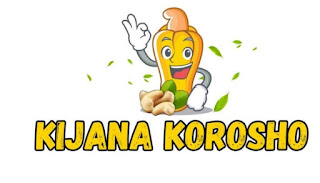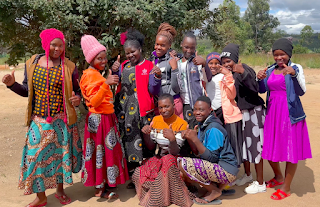Bonaventura and cashew nuts
/ENGLISH VERSION BELOW/
J’étais tranquillement installée dans mon restaurant préféré avec mon ordinateur, lorsque Bonaventura, un étudiant de premier année, s’est installé à côté de moi pour travailler. J’en ai profité pour lui demander de me parler de ses projets. Cette fois-ci, on entre dans l’univers des noix de cajou.
Avec 13 autres étudiants du programme Team Academy, ils achètent en gros des noix de cajou aux paysans, les emballent aux couleurs de leur marque, puis les revendent aux magasins locaux en B2B. Ils ont commencé le projet en novembre et ont déjà environ 10 clients qui passent des commandes régulièrement. Etiquette orange, slogan accrocheur : « kaa kijanja » : sois rusé ! Il me présente les deux types de produits qu’ils vendent. Un grand paquet à 5000 TZS (environ 2 CHF), et le second, plus petit à 2000 CHF (moins d’un 1 CHF).
Leur vision : donner des opportunités d’emplois aux jeunes en les intégrant dans l’entreprise et en leur apprenant les bases de l’entrepreneuriat. Dans 5 ans, ils aimeraient exporter ces noix de cajou et avoir formé plusieurs centaines de jeunes. Ils travaillent aussi sur un nouveau produit des cookies.
J’ai été curieuse de voir comment ils gèrent une aussi grosse équipe. Bonaventura m’explique que ce n’est pas facile et qu’ils ont mis en place des règles pour les personnes qui arrivent en retard ou qui ne se comportent pas correctement. Par exemple, il s’occupe de l’administration du groupe WhatsApp et les sort du groupe s’il y a un problème. Les personnes concernées doivent ensuite écrire un mot d’excuse pour y être réintéingré. Le plus gros challenge est d’engager tout le monde et d’attribuer un rôle spécifique à chacun. Comme dans beaucoup d’équipes, certains sont plus engagés que d’autres.
Autre challenge : l’investissement. Bonaventura m’explique qu’il a beaucoup plus investi dans le projet que d’autres, car certains n’étaient pas prêts ou ne pouvaient pas le faire. Quand je lui demande ce qu’il en pense, il me dit qu’il veut simplement supporter ce projet et qu’il espère que quand ils pourront se payer des salaires, on pensera à lui rendre son investissement.
En attendant, il garde le sourire et travaille sur d’autres projets en parallèle.
_______________________________________________________________________
I was sitting quietly in my favourite restaurant with my computer when Bonaventura, a first-year student, sat down next to me to work. I took the opportunity to ask him about his projects. This time, we're entering the world of cashew nuts.
Together with 13 other students from the Team Academy programme, they buy cashew nuts in bulk from the farmers, pack them in their brand colours and then sell them to local shops in B2B. They started the project in November and already have about 10 customers who place orders regularly. Orange label, catchy slogan: "kaa kijanja": be clever! He shows me the two types of products they sell. A large package at 5000 TZS (about 2 CHF), and the second, smaller one at 2000 CHF (less than 1 CHF).
Their vision is to provide employment opportunities for young people by integrating them into the business and teaching them the basics of entrepreneurship. In 5 years, they would like to export these cashew nuts and have trained several hundred young people. They are also working on a new cookie product.
I was curious to see how they manage such a big team. Bonaventura explained to me that it is not easy and that they have rules in place for people who arrive late or do not behave properly. For example, he takes care of the WhatsApp group administration and kicks them out of the group if there is a problem. The people concerned then have to write a note of apology to be reinstated. The biggest challenge is to get everyone on board and to assign a specific role to everyone. As in many teams, some are more committed than others.
Another challenge is investment. Bonaventura explains to me that he invested much more in the project than others, because some were not ready or could not do it. When I ask him what he thinks about it, he says that he just wants to support the project and hopes that when they can afford to pay salaries, they will think of giving him back his investment.
In the meantime, he keeps smiling and works on other projects in parallel.




.jpeg)
Great initiative
ReplyDeleteGreat!
ReplyDeleteDetermination and consistency is Key! I love this! I’m inspired to do better for my business. Thank you BV!
ReplyDelete